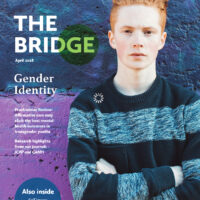Search results
-

The challenge: Getting research interventions into community where they are needed
This article is a summary of the paper published in JCPP – Hybrid implementation model of community‐partnered early intervention for toddlers with autism: a randomized trial.
Read more -

The quality of autism intervention studies must improve to ensure validity
The past decade has seen a rise in the number of international reviews of autism spectrum disorder (ASD) interventions, but confusingly, many of these reviews come to different conclusions or only assess selected forms of intervention.
Read more -

Compensating for ASD: masking the truth?
“Compensation” is a phenomenon by which individuals with Autism Spectrum Disorder (ASD) show improvements in overt symptoms, namely their understanding of others (“theory-of-mind”, ToM), despite persisting deficits at the cognitive and neurobiological levels.
Read more -

Detaching RAD from DSED: the rationale and research requirements
In order to view this content, you need to be an ACAMH member. Membership starts from just 11p a day. We hope you consider joining and being part of the advancement of child and adolescent mental health.Read moreCurrent members will need to be registered as a website user and log in, our guide to this simple process can be accessed here.
-

The Bridge – Gender Issue
Blogs about gender from the April 2018 edition of The Bridge, ACAMH’s journal of secondary publication.
Read more -

Affirmative care may elicit the best mental health outcomes in transgender youths
In their recent review published in the Journal of Child Psychology and Psychiatry, Jack Turban and Diane Ehrensaft highlight that high rates of anxiety, depression and suicidal intentions in children with gender concerns may be reduced by following affirmative treatment protocols.
Read more -

The early ASD screening debate continues
The debate about screening and providing early treatment for young children with, or with high likelihood of, autism spectrum disorder (ASD) is ongoing, but limited data are available to support either side of the argument. Now, a systematic review of randomised controlled trials (RCTs) of interventions for children ≤6 years with (or with high likelihood of) ASD has concluded that the available data is currently insufficient to support the argument for early intervention.
Read more -

Positive news on the Peer Education Project
A new school-based programme by the Mental Health Foundation called the Peer Education Project (PEP) has been making leaps and bounds in tackling rising issues with mental health in young people.
Read more -

Digital health interventions for the young: meeting expectations?
The number of digital health interventions for mental health disorders is increasing, but research from Chris Hollis and colleagues suggests that the clinical benefits and cost-effectiveness are unclear. Consistent methods of reporting and evaluation are required to extract definitive conclusions from clinical trials.
Read more -

Autism & Intellectual Disabilities – Expert analysis, new research: what works
The Jack Tizard Memorial Lecture and Conference will be held over 2 days, day one focussing on Intellectual Disabilities, day two on Autism. Under the theme ‘Expert analysis, new research: what works’ you will hear from world-leading experts delivering the latest evidence and best practice examples, that will shape people’s knowledge. Sharing new research, disseminating […]
- Event type
- National Conference
- Location
- London